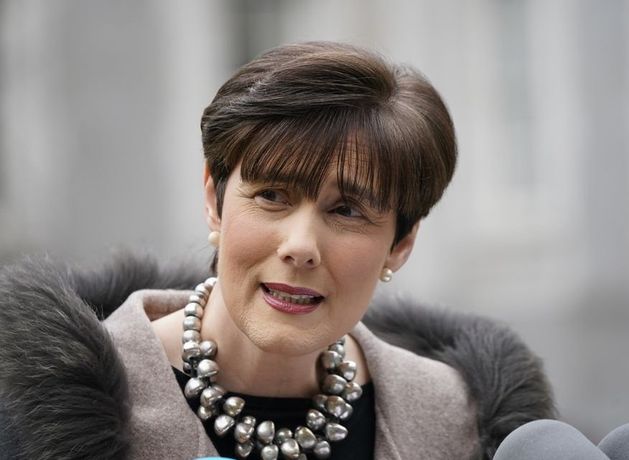The legislation paves the way for planning applications to be submitted for strategic gas infrastructure development, including a terminal used for the importation, offloading, and re-gasification of LNG.
The bill was strongly rejected by those opposed to the LNG project which is earmarked for the Ballylongford landbank in North Kerry.
But Minister Foley welcomed the move saying the bill designates LNG facilities as strategic infrastructure.
She stated that North Kerry offers ‘significant potential’ as an LNG storage facility that would boost jobs in the locality and improve Ireland’s energy security.
Most of Ireland’s gas is imported through two gas pipelines from Moffat in Scotland, which has led to concerns about the impact of any disruption to supply.
Minister Foley explained that the government’s energy security review noted that gas storage is used as a means of providing security of supply in many countries.
This delivers an additional reserve of gas to meet occasions when there is strong demand or supply disruptions. The review also proposed that a non-commercial state-led floating LNG facility be established.
“This government has made progress in accelerating the development of renewable power to help fully de-carbonise our economy by 2050,” she said.
“But there has to be a recognition of the need to strengthen our energy security as we transition to 100 per cent renewables. The provision for LNG facilities in the Planning and Development Bill ensures that we can take a balanced approach,” she added.
In response to opposition of the Planning and Development Bill, Mr Foley said it was published in January 2023 and has undergone ‘widespread consultation’ since.
“It has been subject to more than 175 hours of debate across both houses of the Oireachtas. It is designed to improve the efficiency and transparency of the planning system, so that more housing and strategic infrastructure can be delivered,” she said.
“The bill will deliver a more streamlined planning process by introducing legally-binding timelines for all parts of the planning process. There will be a significant reorganisation of An Bord Pleanála, which will be known as An Coimisiún Pleanála,” Minister Foley added.
The minister further defended the bill by saying it makes provision for deterring abuse of planning processes through spurious planning submissions and appeals, as well as a ban on requesting payment for not opposing development.
Moreover, she cited the bill’s advantage in improvements to the planning judicial review processes and longer term, more strategic, ten-year development plans for Local Authorities instead of five-year plans.
However, the Friends of the Earth group has sharply criticised politicians for amending the planning bill saying it amounts to a U-turn on LNG.
The group also called on the Green Party to use legislative opportunities to demonstrate its commitment to banning LNG.
Jerry Mac Evilly, Head of Policy in Friends of the Earth, said several TDs had put forward amendments to the Planning Bill rejecting LNG.
“The Government agreed to a moratorium on LNG, but clearly didn’t use a policy instrument that was legally strong enough to enforce it,” he said.
“The Green Party needs to ensure that the moratorium on LNG is immediately re-established. That could be done in legislation if time allows before the election, or through a directive directly from the minister,” Mr Mac Evilly added.

